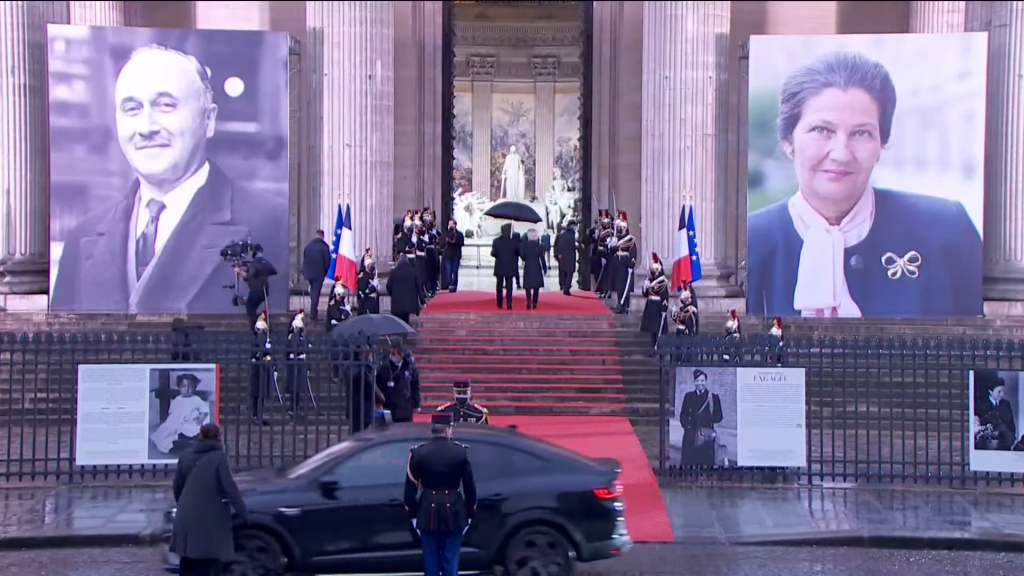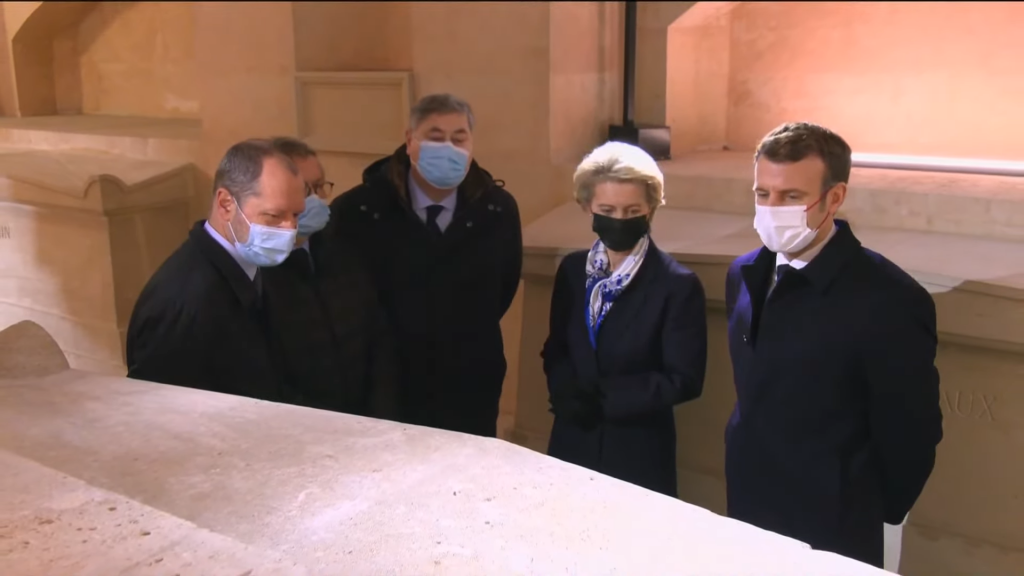On January 8, President Emmanuel Macron and President of the European Commission Ursula von der Leyen, accompanied by several Ministers and the College of Commissioners in Paris for the launch of the PFUE 2022, paid tribute to two great Europeans and two great Frenchmen : Jean Monnet and Simone Veil. Jean Monnet, the first president of a European executive, and Simone Veil, the first woman president of the European Parliament, marked the construction of Europe with their vision and the European institutions with their pragmatism.

The ceremony took place in the presence of the families and was the occasion for a rich exchange on the need to cultivate the memory of the first hours of European construction and the spirit of the founders. In the aftermath of the war, it was a question of uniting Europeans to guarantee peace and recover together a lost capacity for action. 70 years later, the need for union is still just as pressing and its modalities must reflect the realities of today.

In these selected offers, pronounced 50 years apart, Jean Monnet and Simone Veil seem to answer each other:
John Monet: “The unification of Europe has a significance for civilization which goes beyond even security and peace; Europe is at the origin of the progress from which we all benefit, and Europeans today are capable of bringing to the development of civilization, through their creative spirit, as great a contribution as in the past. But to allow this creative spirit to flourish again, we must bring our institutions and our economy into line with the modern age. It is by unifying Europe that we will achieve this”
Simone Veil:For its founders, Europe was above all a political project. We must return to the concept that inspired it by renovating the European institutions in the direction of democracy and efficiency”. “Setting itself great ambitions, Europe will be able to make its voice heard and defend strong values: peace, the defense of human rights, more solidarity between the rich and the poor. Europe is the grand design of the 21st century”